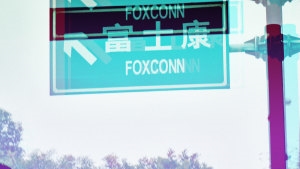Foxconn’s $3 Billion Tax-Break Deal Is A Loss For Smart Jobs Policies
The biggest jobs deal yet to be announced during the new presidential administration exemplifies everything that’s wrong with our nation’s economic development system.
The tone was giddy as President Donald Trump himself headlined a July 26 White House event to announce that Taiwanese electronics maker Foxconn will build a large new plant in southeastern Wisconsin. Warming up the crowd were Foxconn chairman Terry Gou, Wisconsin Gov. Scott Walker, and House Speaker Paul Ryan, in whose Congressional District the plant will likely reside.
However, no media questions were allowed and no mention was made of the deal’s staggering costs for Wisconsin taxpayers. At a projected $3 billion (before local subsidies, which the state signaled will be liberalized just for this deal), it would the fourth-costliest economic development subsidy package in U.S. history.
Even if the project creates all 13,000 jobs the politicians said it potentially could–and I find that absolutely not credible given how automated high-tech manufacturing has become–that means a cost of more than $230,000 per job.
At that price, the deal is a sure loser for Wisconsin taxpayers. That’s because there is no way the typical Foxconn worker will pay $230,000 more in state and local taxes than she and her family will consume in public services over her work time there. At that price, the deal can only be accurately described as a transfer of wealth from Wisconsin taxpayers to Foxconn shareholders.
Besides high costs, benefits are likely to be lower than Walker’s press package suggest. Badgers won’t get all of the jobs: Like any high-tech company newly arriving in a labor market without the right executive talent pool, Foxconn will need to import managers and engineers from outside the state–and probably many of those from outside the United States–since there is no existing liquid-crystal display factory outside Asia.
Illinois is likely the biggest cost-benefit winner. Although the project site has not been finalized, the Racine-Kenosha area straddles the state line between Milwaukee and Chicago, and it draws many Prairie State job takers. Spending not a penny for the deal, Illinois would thus gain jobs, tax revenue, and “downstream” ripple-effect jobs as well. Indeed, Illinois’s economic development agency told the Chicago Tribune that it is already gearing up to help workers in three counties qualify for Foxconn jobs.
Foxconn reportedly pitted several states against each other for the deal, with the blessing of the White House. Indeed, in his speech at Carrier in Indianapolis last December, Trump endorsed the “race to the bottom” system that allows corporate site location hunters to extract the largest tax-break packages possible.
It’s a tragic waste of the president’s bully pulpit on jobs. Instead of using his “America First” frame to promote cooperation among the states, he is blessing the “second war among the states,” as Business Week dubbed it 41 years ago.
President Trump is also sending exactly the wrong message about how America’s job-creation machine can best be reignited. Only weeks ago, he proposed a budget that would entirely eliminate programs such as the Manufacturing Extension Partnership, a longstanding and successful program with bipartisan support that helps small- and medium-size manufacturers adopt to new technology. He also proposed huge cuts to other economic, community, and workforce development programs that benefit employers everywhere.
Now, instead, by fronting an event for one huge deal that may never materialize (Foxconn has already failed to deliver in Pennsylvania and on some big overseas projects as well) Trump is personally blessing the “buffalo hunting” school of economic development, in which a few companies get huge “megadeals” while programs that benefit many employers suffer budget cuts, and small businesses and entrepreneurs get shortchanged.
Economic development in America remains a hyper-politicized subject, with the number of new deals still less than half of what they were–in 1999. That’s why Trump’s campaign emphasis on jobs resonated so well. It also means that state and local politicians are more prone to over-spending, because they feel they must look aggressive on jobs. Short supply plus heightened demand: That’s why we’ve seen a spike in nine- and ten-figure subsidy “megadeals” like Foxconn since 2008.
That’s the tragedy of Trump’s leadership failure. Stooping to the parochial role of a governor or mayor, he has failed to appreciate that as president, and with national unemployment at 4.4%, he could disrupt the “race to the bottom” and put buffalo hunting in a museum where it belongs.
Greg LeRoy is executive director of Good Jobs First and author of The Great American Jobs Scam.
The biggest jobs deal yet to be announced during the Trump administration exemplifies everything that’s wrong with our nation’s economic development system.
The biggest jobs deal yet to be announced during the new presidential administration exemplifies everything that’s wrong with our nation’s economic development system.
Fast Company , Read Full Story
(29)













